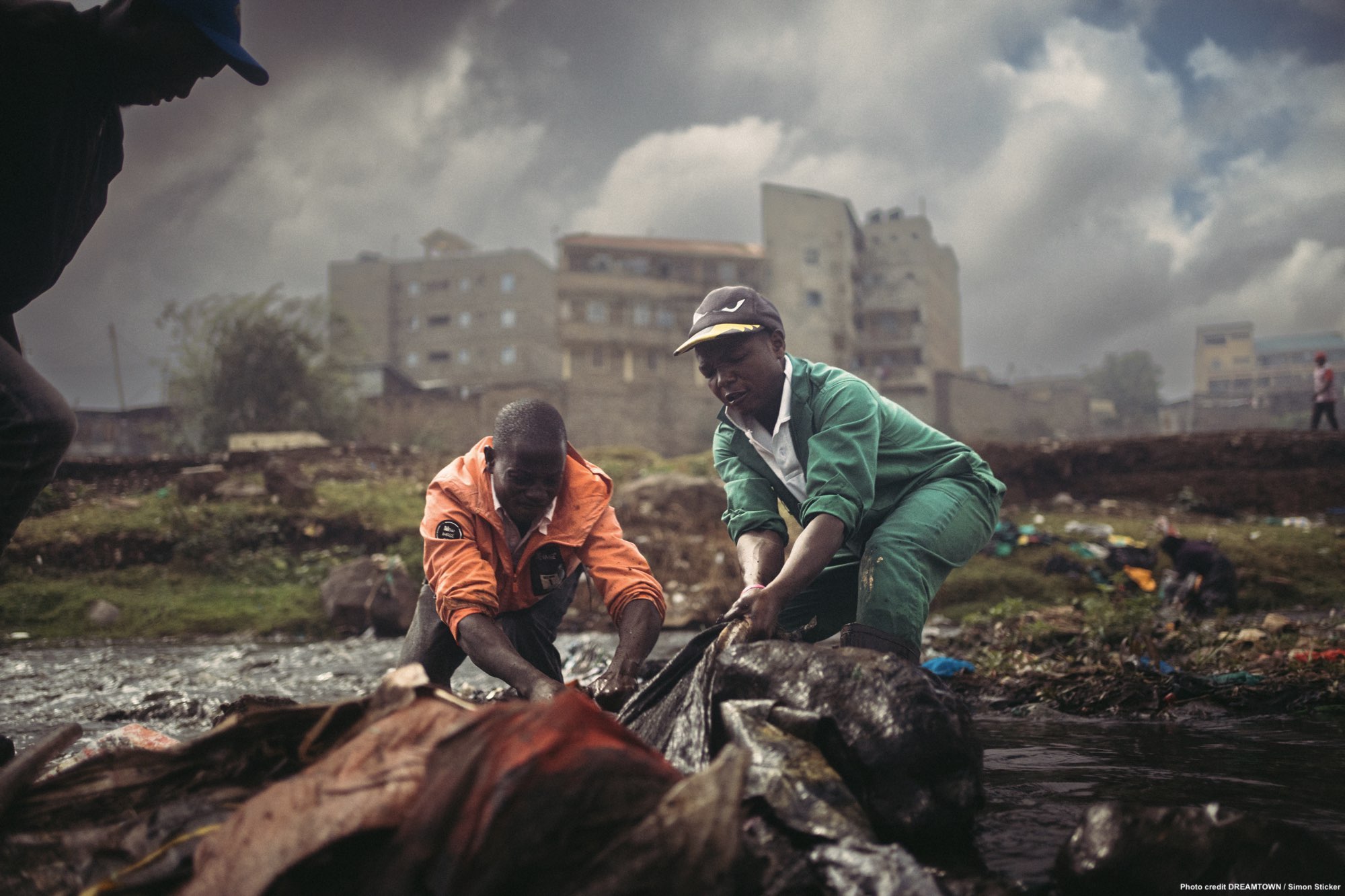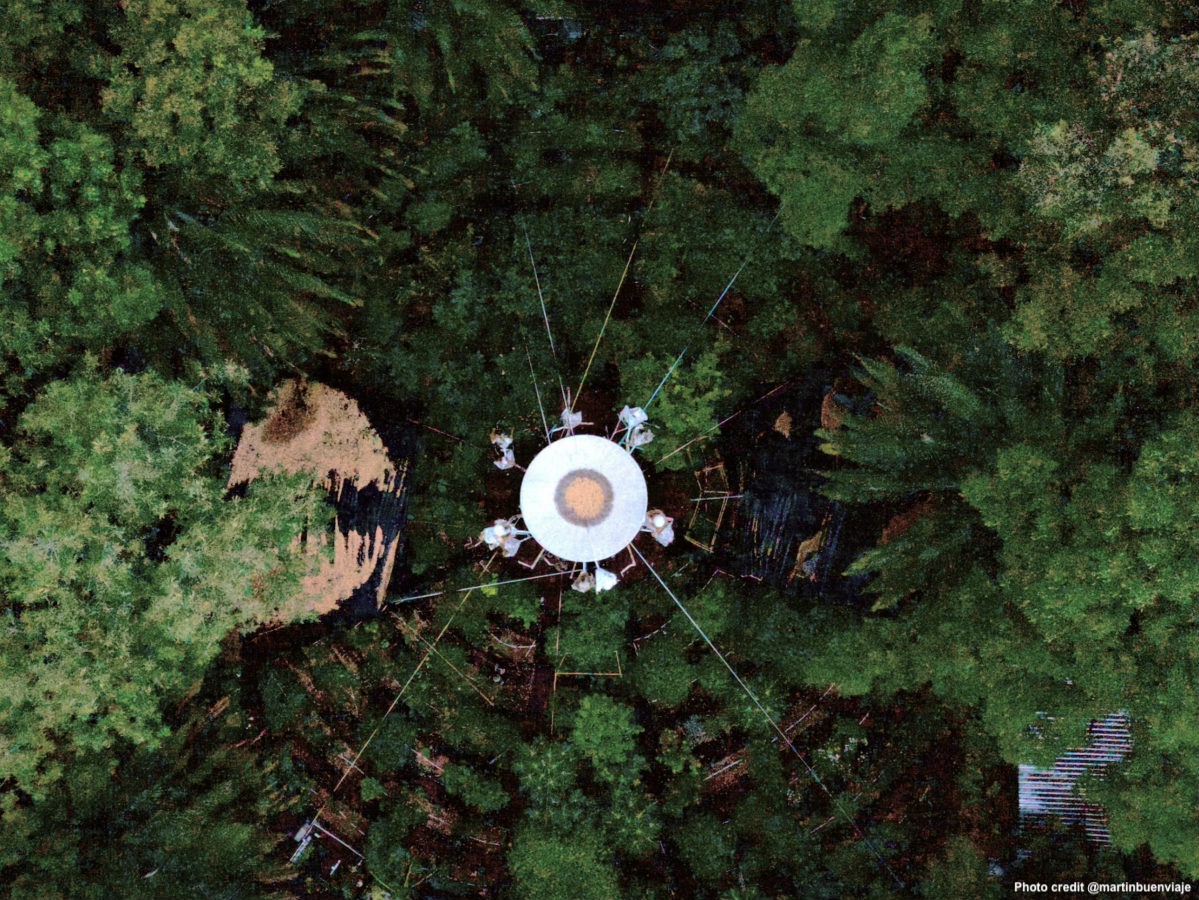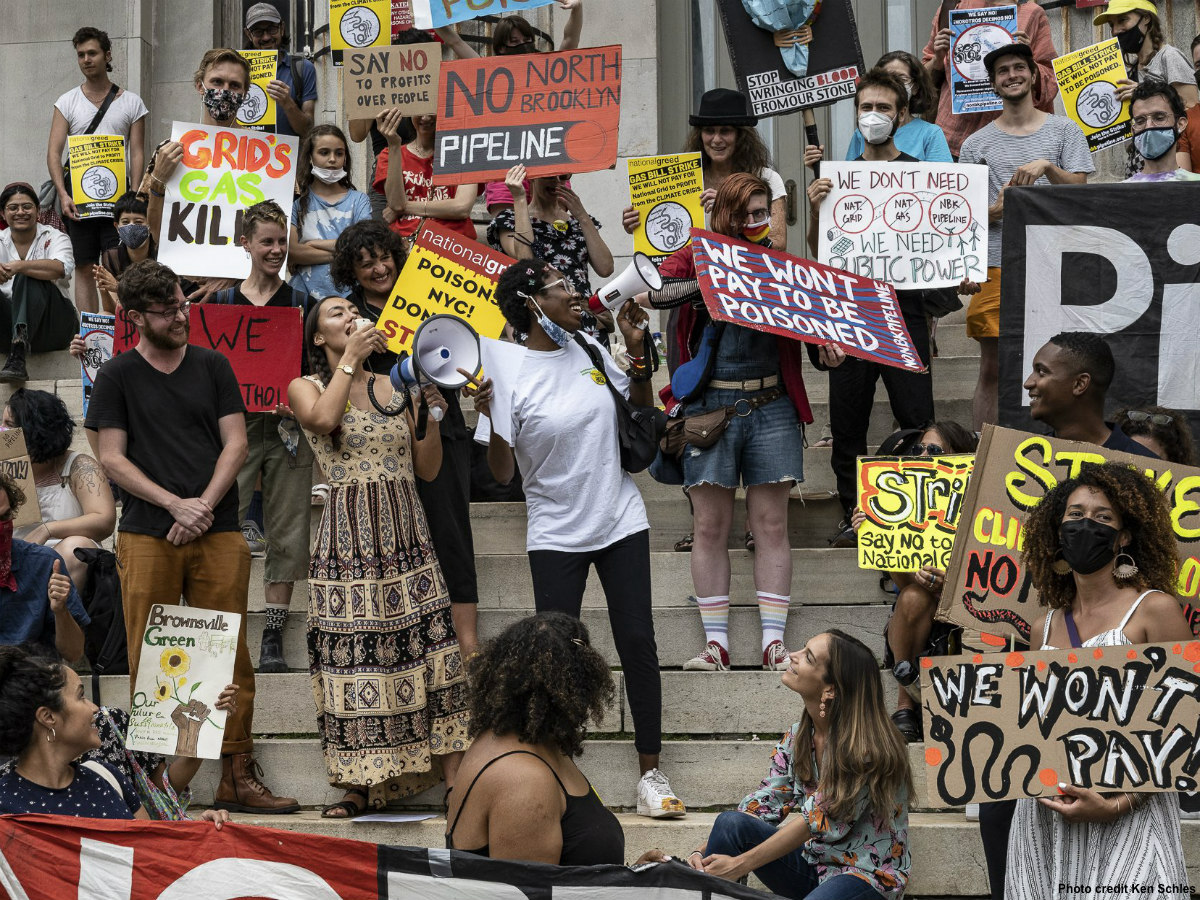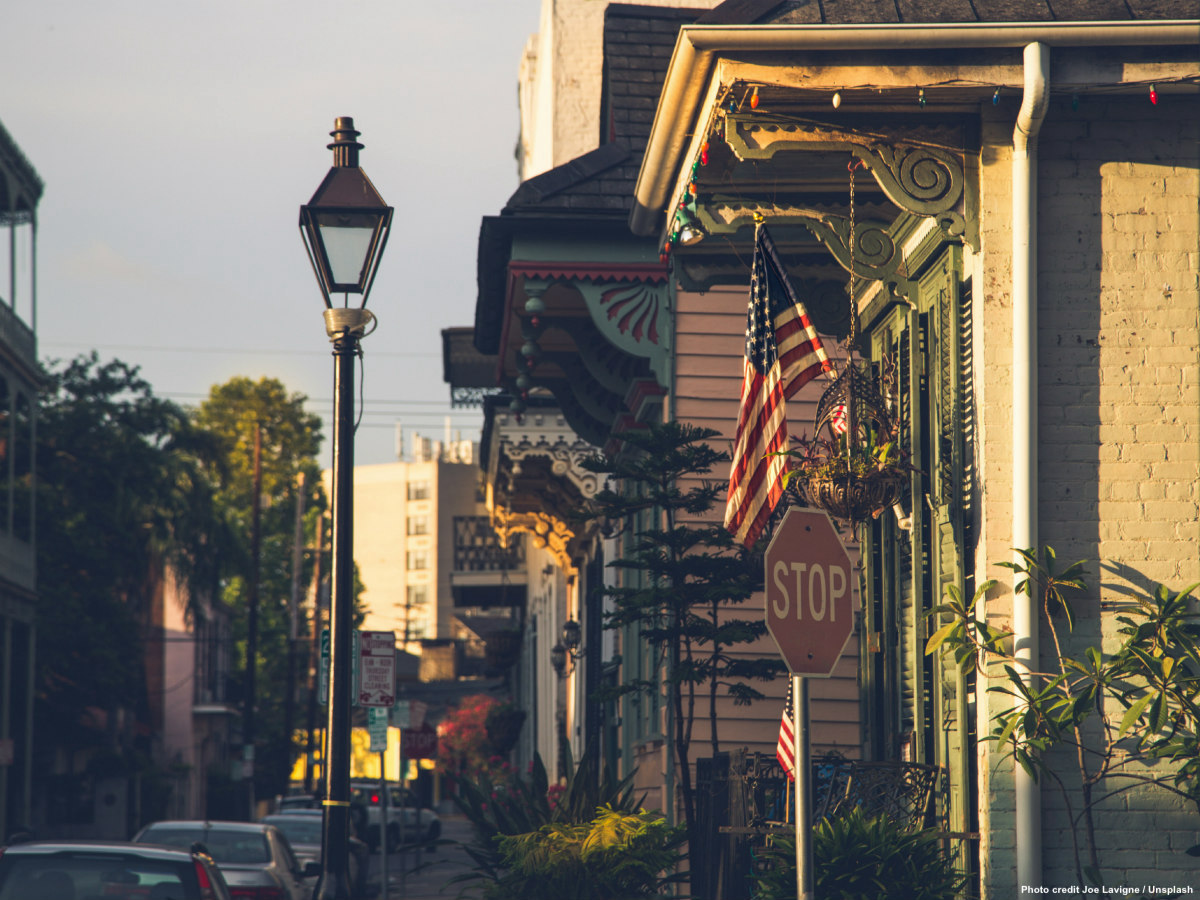It is Wednesday morning and I got a message on my phone from Chris in Onitsha, Nigeria. His 22-year-old friend has died of kidney failure. Not that I have known him well, or even ever met him, but I knew this young man from shocking pictures of him and Chris voluntarily cleaning the gutter of Edgerton Road in one of the most polluted cities in the world. Without telling the story of Chris, and the efforts of others like him, I would miss the true story of a well-known problem, ocean pollution, that starts in some of the most informally urbanized places of our planet.
The first time I met Chris was when I came across a short article in a local newspaper in Nigeria of a group of friends cleaning their street and trying to stop people from dumping garbage into the gutter system of the city. It is meant to transport rainwater during the rainy season and discharge it into the Niger river. From there plastic and other solid waste make it to the Atlantic contributing to the global pollution of our ocean. I found Chris thanks to Facebook in 2018. In our interview he explained to me how the garbage problem aggravates due to the market along his street because sellers don’t know what to do with the remaining waste.
After his story was published, I kept in contact with Chris, who, with a University degree in hand, asked me for advice on how to scale his initiative to keep the gutter clean. His videos of an unsupervised dumpsite where the city gutter flows into the Niger River offer another dreadful picture of ocean pollution. Amid the difficulty of getting funds to place trash bins in his neighborhood and to rent a truck for the garbage collection to take it to an official dumpsite, Chris temporarily pulled back from his endeavor. He began asking me more for personal advice on his future; violence among ethnic groups was rampant in his neighborhood, and protests against police violence ballooned into a massive call #EndSARS for the abolition of the Special Anti-Robbery Squad (SARS), a rogue police unit accused of extrajudicial killings, extortion and kidnapping among other crimes. Chris considered migrating. Is it not hard to challenge the system when you are struggling to survive?
Over five thousand kilometers from Onitsha lives a man with the same name as Chris in the neighborhood of Korogocho, one of the largest informal settlements in Nairobi, Kenya. Almost all unplanned developments such as informal settlements and unofficial markets are built in the wetlands along the banks of the seven rivers flowing through this city. Nairobi, the 10th highest capital in the world, has been built in the largest tropical swamp in Africa, Ondiri swamp in Kikuyu language, the grazing land of pastoralist people, the Maasai, the sedentary Akamba people, as well as the agriculturalist Kikuyu people who were all displaced by the colonialists.
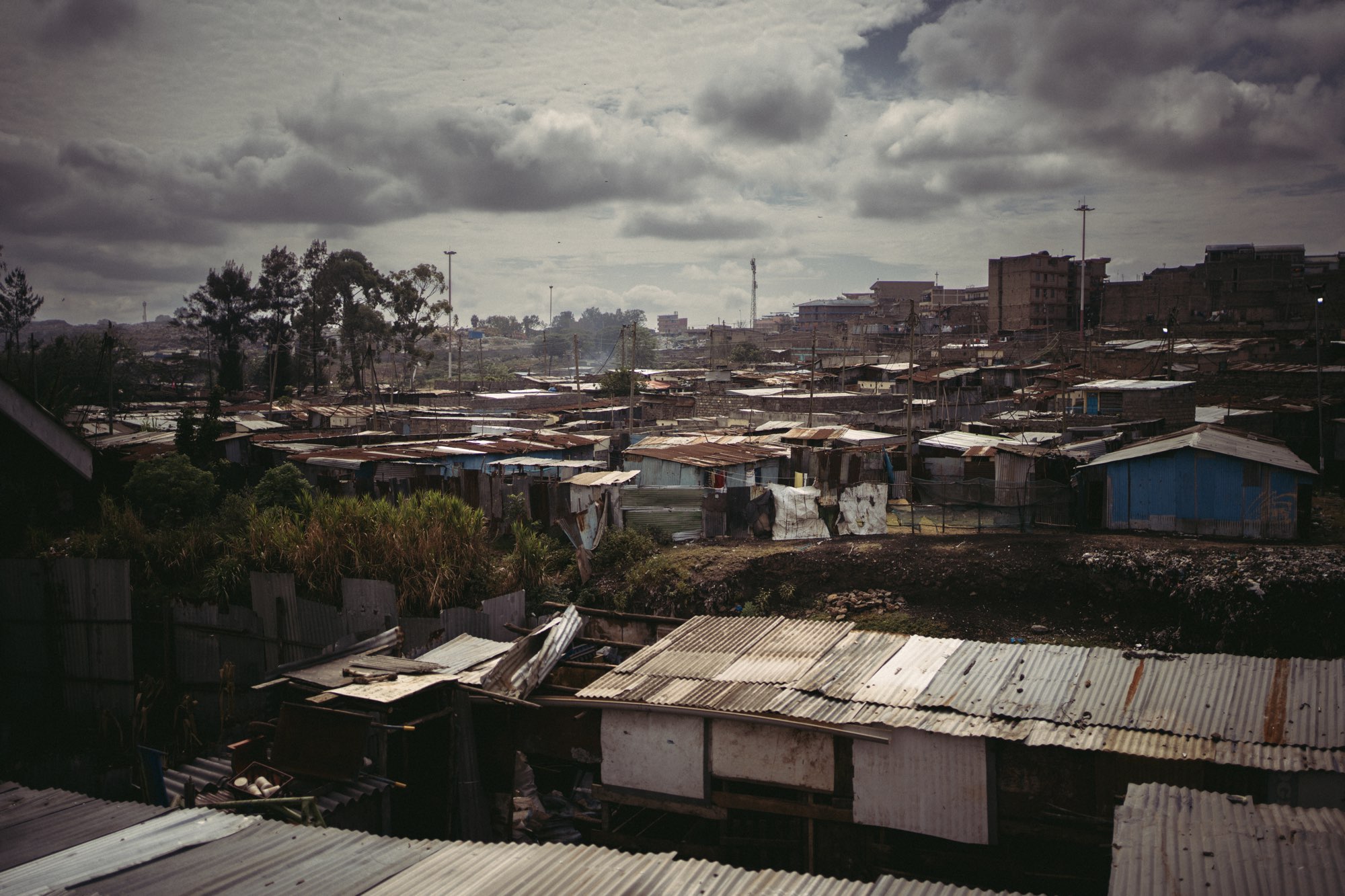
Here the Savannah is adjacent to the forest with plenty of ground water springs that give rise to the rivers which traverse Enkare Nyirobi, which comes from the Maasai phrase ‘the place of cool waters’, and gives the name to the city. Unfortunately that description given by the Maasai has lost its significance a long time ago. All of the seven rivers, including the abundant Nairobi River which meets the Athi River to finally drain its waters to the Indian Ocean, present high levels of pollution. Farmers down the river bear the consequence of poor water quality as well. “The Nairobi River is the river of death,” tells me Chris in a phone call.
He grew up in Korogocho where almost 200,000 people live in a “crowded area shoulder to shoulder” (in Swahili Korogocho) in an environment of crime and violence in between the natural borders of the Mathare and the Nairobi Rivers. The entrance to the area is through the Korogocho market and on the other verge of the neighborhood is where the Mathare River flows into the Nairobi River near the official Dandora dumpsite.
Growing up in the midst of gangs – stealing, killing or being killed was a part of life. But when Chris lost his best friend due to police brutality, he and a group of youthful volunteers decided to break the cycle of crime and violence and take care of their community. They began rehabilitating the part of the river that flows through Korogocho and preventing solid waste dumping. “This place was a dumpsite. It took us one year to remove the garbage,” tells me Chris. Now he manages the grassroots organization Komb Green with the support of Dreamtown in collaboration with their partners in Kenya, Public Space Network, and UN-Habitat.
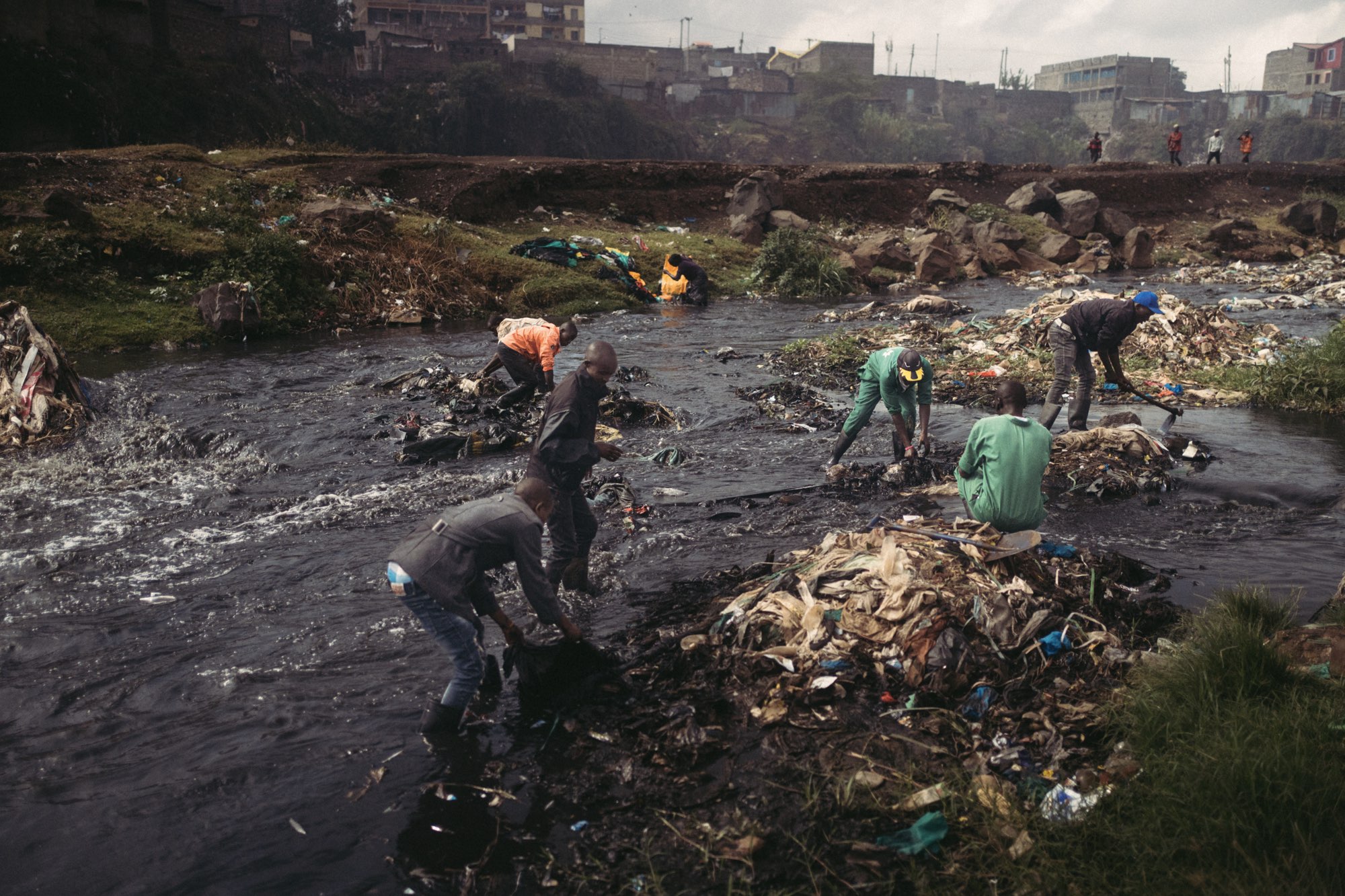
Komb Green has transformed the area along the river in Korogocho into the RiverFront Park, an oasis of lush greenery with a playground for kids and a greenhouse. Urban farming practices use a hydroponic system for irrigation – the water of the river would be too hazardous for human health – and use organic waste instead of chemicals to nurture the planting raised beds.
The organic waste comes from a collection point as part of a garbage collection plan that Komb Green has put in place at households in Korogocho. “All the community now knows how to dump and where,” says Chris. I realize that he has been much luckier than Chris in Onitsha. And he continues, “When the garbage bins are full, every week we come and pick up the trash thanks to contracts given by the government. We do some segregation of the waste before bringing it to the Dandora dumpsite.”
Komb Green’s system is two months old now, and so far it has been successful. Yet “maintaining the park is not easy,” acknowledges Chris. Komb Green has put in place a feeding program each and every Saturday “to sustain ourselves, so that we can maintain the park and feed our community. We have a list of the most vulnerable families in our community.” Every month Komb Green has to remove trash carried downstream from the neighboring markets and communities.
And then he tells me something more familiar that seems to be an endemic problem at the thousands of markets in African cities. Unfortunately there are no garbage bins at Korogocho market, neither are there any at the one in Edgerton Road in Onitsha, thus sellers end up dumping their remaining waste into the river that flows through the RiverFront Park. “It is the responsibility of the government to put garbage bins at the market,” says Chris, “specially where so much organic waste is generated and from which the city could benefit instead of buying chemicals.”
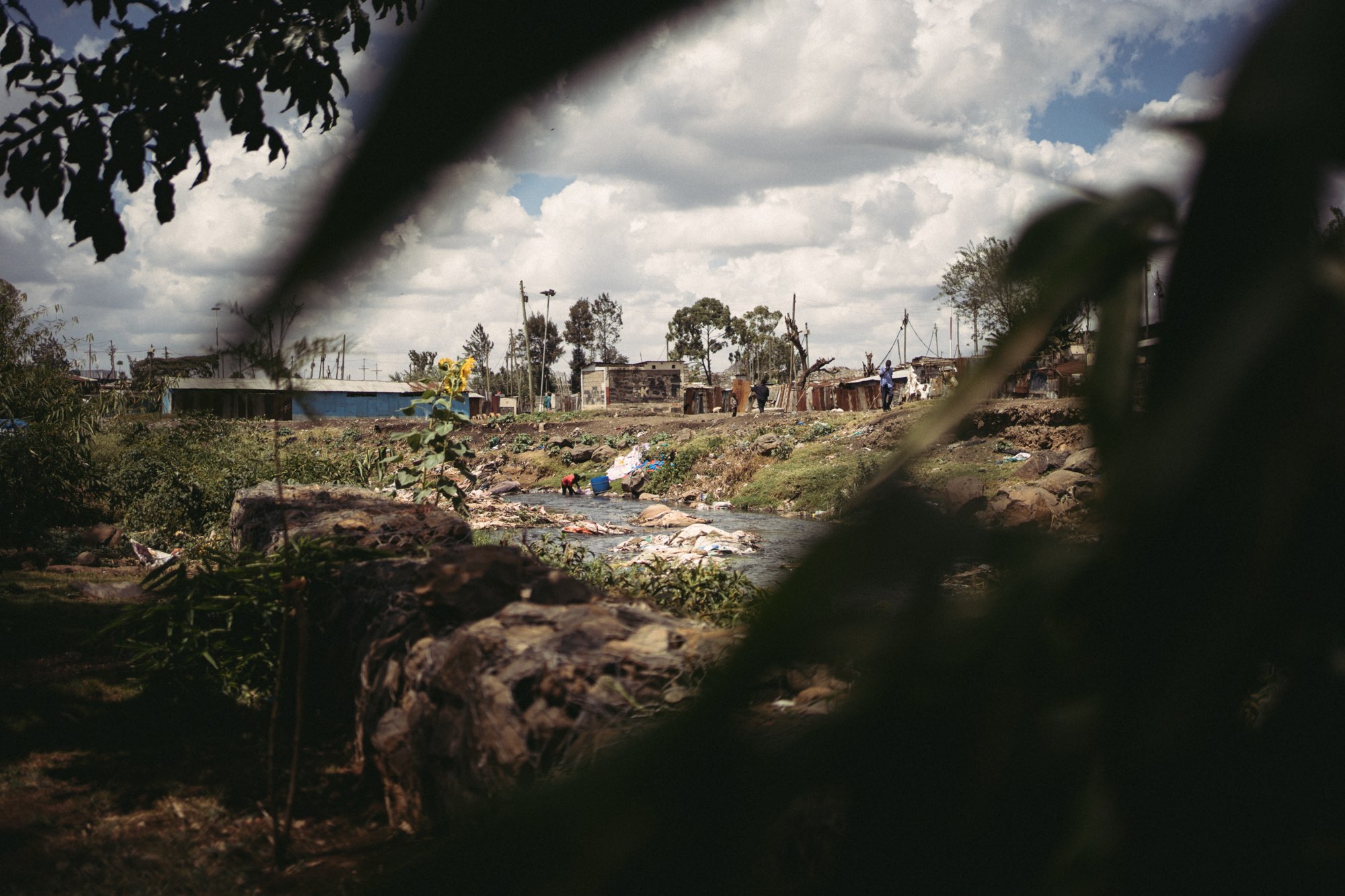
“Many plastic bags from the market are washed into the river, however most people don’t know about the danger and implications. Education is an issue, we should have access to the right education to pass to other groups,” says Chris. There is a community dialog each and every month. Where previously many of the young men have been engaged in crime and young women in commercial sex work, now “we talk about security issues, capacity building for the youths, and waste management, how we want our community to look like.” How much of this story, I wonder, might be replicated in Onitsha?
Actually, Komb Green has started to reach out to neighboring communities with the hope that the example at Korogocho will slowly spread and the rivers flowing through Nairobi could be rehabilitated with the help of other neighborhoods. However, informal settlements like Kibera, notices Chris, “don’t have either roads or access to a place where they can dispose of the collected garbage. “For us it is easy, the Dandora dumpsite is only 2 kms away.”
When I ask Chris if he feels that the government is listening to them and recognizes the effort they are doing in Nairobi, he tells me that the President visited the site but the government hasn’t funded any single point of their work. Last year, in Onitsha, the state government declared a public holiday for a clean up of the streets and Chris was finally excited again to mobilize his friends and clean up the gutter along Egerton Road. The government promised to provide vehicles that will come and carry the trash to dump sites. But instead they took pictures for political score and left, and hope turned into deception again. “In my neighborhood nobody wants garbage bins in front of their houses or businesses because they are afraid that if the sanitation department doesn’t show up to empty them, often the case, they will have piles of trash at their front door,” explains Chris.
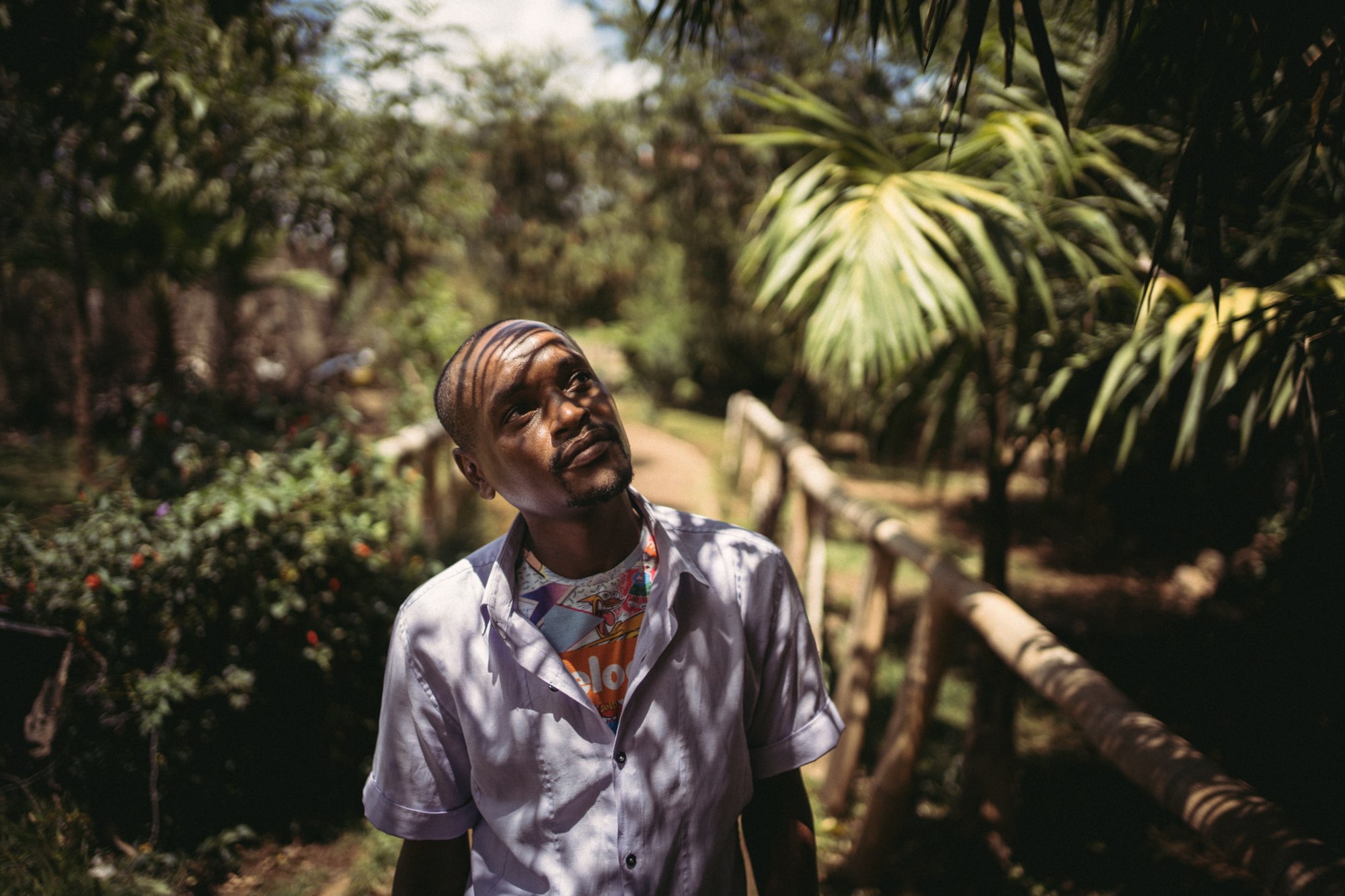
What it takes to put a trash bin in African Cities provides some concrete notion, and simple action, about the problem of ocean pollution, and that is at least a good feeling in such an overwhelming issue. But certainly, ocean pollution is intertwined with endemic problems of violence and the loss of trust in the social fabric of cities. Colonialism ripped local practices off and white settlers brought from their home concepts that had little to do with the reality of the ecological environment they colonized. This colonial disregard continues to reign in the leadership and governance of African cities. In Nairobi a big project for the rehabilitation of the Nairobi River is under way, but local communities fear that new developments will not take their views into account, or even worse, force them to relocate to other parts of the city.
Komb Green hopes that their work will at least provide a testimony for the government that the local communities have the drive, energy, and ideas – and it should have gained them credit to be included once the rehabilitation of the Nairobi River starts. The world should understand that the development of African cities was adopted with no input from local people and completely ignored environmental protection and resilience practices put in place by tribes in Africa for hundreds of years. If the current city authorities begin to listen to its local communities, that could turn out to be a real paradigm shift to tackle ocean pollution.
I’ve been thinking about how Africans are slowly turning to ancestral practices and attitudes when it comes to environmental protection and the spiritual significance of nature. African youth don’t have perfectly-functioning democratic systems to bring a lawsuit about their constitutional right to a healthful environment. Both Chris, in Onitsha and Nairobi, and many others like Yayra Agbofah upcycling textile waste in Accra, and the list goes on, waged battle hands-on and deserve to be listened to. “We don’t want to live a life of crime” says one Chris about Korogocho, and the other wishes he would not have to think of leaving Onitsha. The fight of pollution is not in the ocean, it is upstream.
Dreamtown supports the drive and initiative of local grassroots organizations, such as Komb Green, to transform neighborhoods into green communities in Nairobi. Watch a video about Komb Green here.
